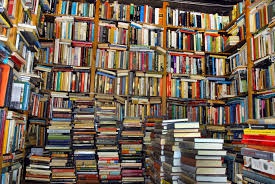 File photo
File photo
Policymakers’ lack of concern about the critical role the indigenous book industry plays in national development is impeding the development of the industry to the detriment of national progress.
Mr Elliot Agyare, the President of the Ghana Book Publishers Association, who raised the concern, said the local publishing industry was the guardian of the indigenous knowledge and culture; therefore the industry deserved special attention and exceptional status.
Speaking at a media engagement, Mr Agyare said in other jurisdictions, the industry receive a lot of attention because they better understand the importance of books to the contribution of education, cultural enrichment and, ultimately, to national development.
“Its role is crucial, especially at a time when the world is taking a keen interest in issues of intellectual property rights and countries are linking up with knowledge centres across the world,” he said.
Mr Agyare said a major impediment to the industry was the lack of a functioning book chain, especially in the distribution, wholesaling and retailing levels in the open market.
He said apart from the lack of bookshops, the few libraries across the nation remained a shadow of what they used to be to those in the 1960s and 1970s.
“The market is small and shrinking and it is also squeezed with overstocks, discounted and even second hand imported books,” he said.
However, Mr Agyare said illiteracy was a threat to national development and security; hence the publishing industry could not be taken for granted.
“The correlation between persistent poverty, irrational religious and ethnic conflicts in our part of the world and illiteracy is well established, and it is a security risk,” he said.
To remedy the situation, he said, people with low literacy backgrounds had to be mobilised and grouped into reading clubs to engage in progressive reading towards eliminating illiteracy.
Mr Agyare said illiteracy was an unnecessary barrier to national development, reconstruction and international competitiveness.
“Ghana needs a literate population which is capable of making informed decisions about a whole range of social, environmental, economic, cultural and political challenges that lay ahead of us,” he said.
He explained that a truly literate population provide the surest means available for the establishment of a truly democratic society within a stable and functional environment.